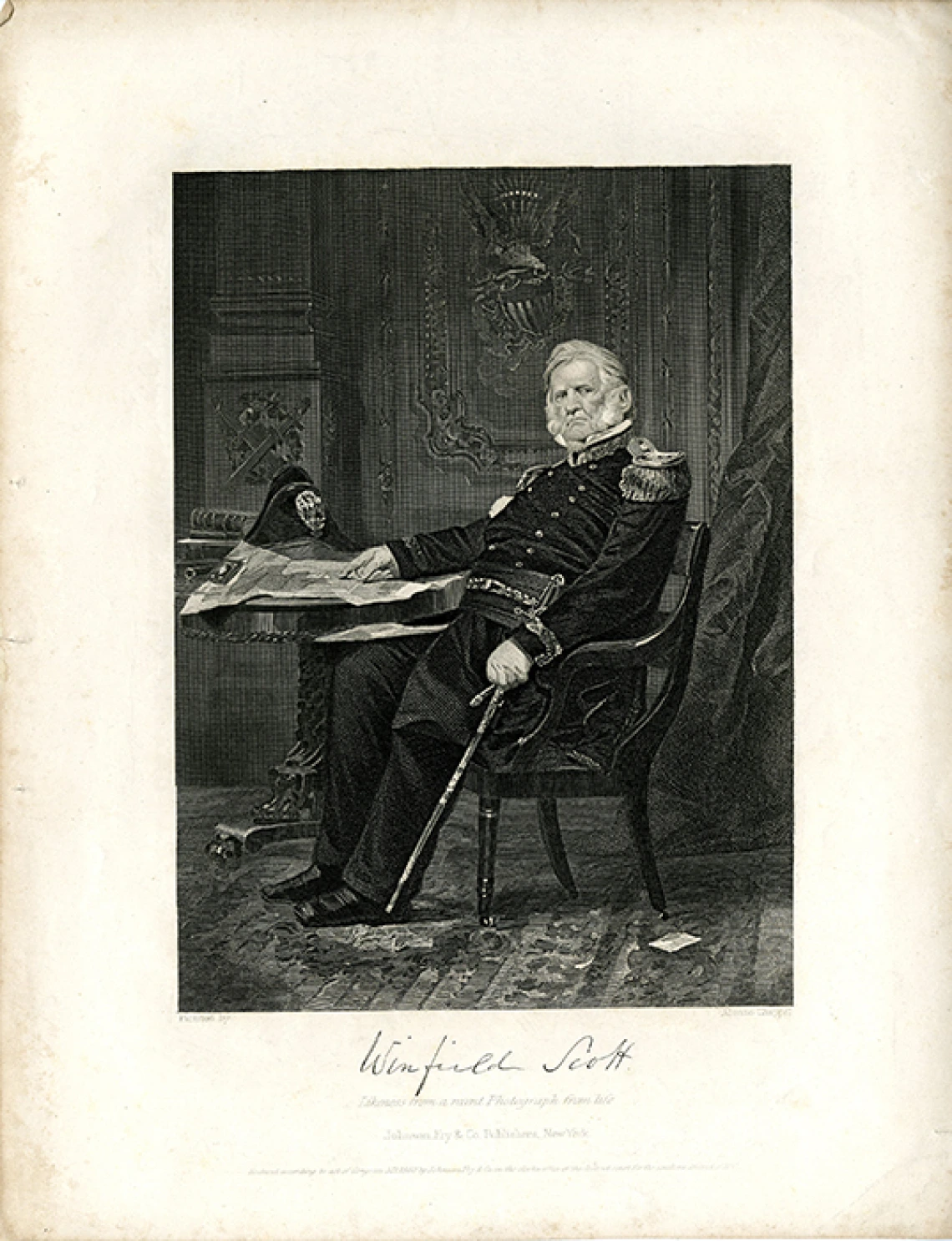Collection of Winfield Scott

Hand-drawn portrayal of Winfield Scott
Collection area: Political Affairs
Collection dates: 1812-1866
This collection consists of a file of correspondence, a file of engraved portraits, and a scrapbook of correspondence along with a small amount of military orders, engraved portraits, political campaign literature, and newspaper clippings related to Scott’s personal, political and military life. Correspondence separate from the scrapbook contains 7 signed letters. The scrapbook contains approximately 130 additional letters between Scott and various military and political officials. Most letters are written by Scott; many are letters of introduction or recommendation. Some letters concern the 1830s conflicts involving the Creek and Seminole peoples; others relate to the War with Mexico. Correspondents include Salmon P. Chase, John E. Wool, and Edwin Stanton. Brief documents are present that are signed by Presidents Andrew Jackson, Ulysses S. Grant, Zachary Taylor, James K. Polk, and Andrew Johnson. Also included in the scrapbook are additional engraved portraits of Scott and other contemporary famous figures, and other miscellanea. Each item is accompanied by a typed description which provides additional background information.
A career U. S. Army officer, Winfield served throughout the War of 1812, Indian Wars, War with Mexico, and the Civil War. He oversaw the removal of the Cherokee from their lands to Oklahoma in 1838, was appointed Major General in 1841, and was the presidential nominee for the Whig Party in 1852. He was General-in-Chief of the U. S. Army at the time of his retirement.
A collection guide explains what's in a collection. New to using our collections? Learn how to use a collection guide.
Collection guideAccess this collection
Visit us in person to access materials from this collection. Our materials are one-of-a-kind and require special care, so they can’t be checked out or taken home.
How to cite
Learn how to cite and use materials from Special Collections in your research.
